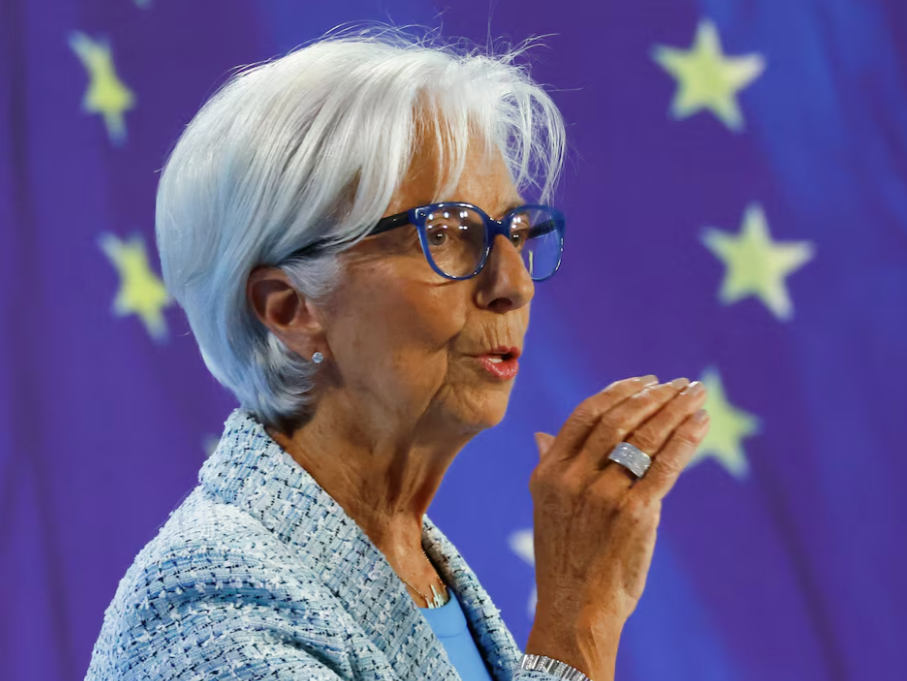World stocks rose and the euro strengthened on Thursday after the European Central Bank (ECB) cut interest rates for the first time in nearly five years. The ECB reduced its key rate by a quarter point to 3.75%, a move widely anticipated by investors.
Despite the rate cut, the euro rose to almost $1.0890 against the dollar, and German government bond yields increased. The pan-European STOXX 600 index rose 0.7%, while MSCI’s global stock index hit a record high before trimming gains slightly.
Wall Street had a more muted response, with the S&P 500 index unchanged after hitting an all-time high earlier in the day. The Dow Jones Industrial Average rose 0.2%, and the Nasdaq Composite Index was flat, pulling back from an all-time high.

Chip maker Nvidia fell 1.1% after hitting a record high, while the euro’s gain took it to $1.0887. ECB President Christine Lagarde stressed that the bank is not committed to a particular rate path.
Stronger-than-expected data and inflation forecasts have raised doubts about further rate cuts this year. Samuel Zief, head of global FX strategy at J.P. Morgan Private Bank, called the cut “cautious” and predicted that September could be the next opportunity for a rate reduction.
The Bank of Canada cut rates on Wednesday, while the U.S. Federal Reserve is expected to maintain rates next week but may cut in September. The Bank of Japan, which meets next week, is debating whether to raise rates.
Canada’s dollar trimmed losses after the rate cut, standing at C$1.37 per U.S. dollar. Germany’s two-year government bond yield rose to 3.037%, while benchmark 10-year U.S. Treasury yields were flat at 4.287%.
Investors are now pricing in nearly two quarter-point Fed cuts this year, with a September move seen as a 68% chance. The U.S. nonfarm payroll report for May, due Friday, will be closely watched for signs of a cooling labor market.
In commodities, Brent crude futures rose 1.9% to $79.86 a barrel, while U.S. West Texas Intermediate crude futures rose 2% to $75.53. Gold gained 0.8% to $2,372.77 per ounce, and bitcoin shuffled back towards March’s record high.
The ECB’s cautious approach and the U.S. Federal Reserve’s expected rate cuts have put markets in a “Goldilocks” range, where bad economic news is seen as good for equities, according to Ben Bennett, Asia-Pacific investment strategist at Legal and General Investment Management.
